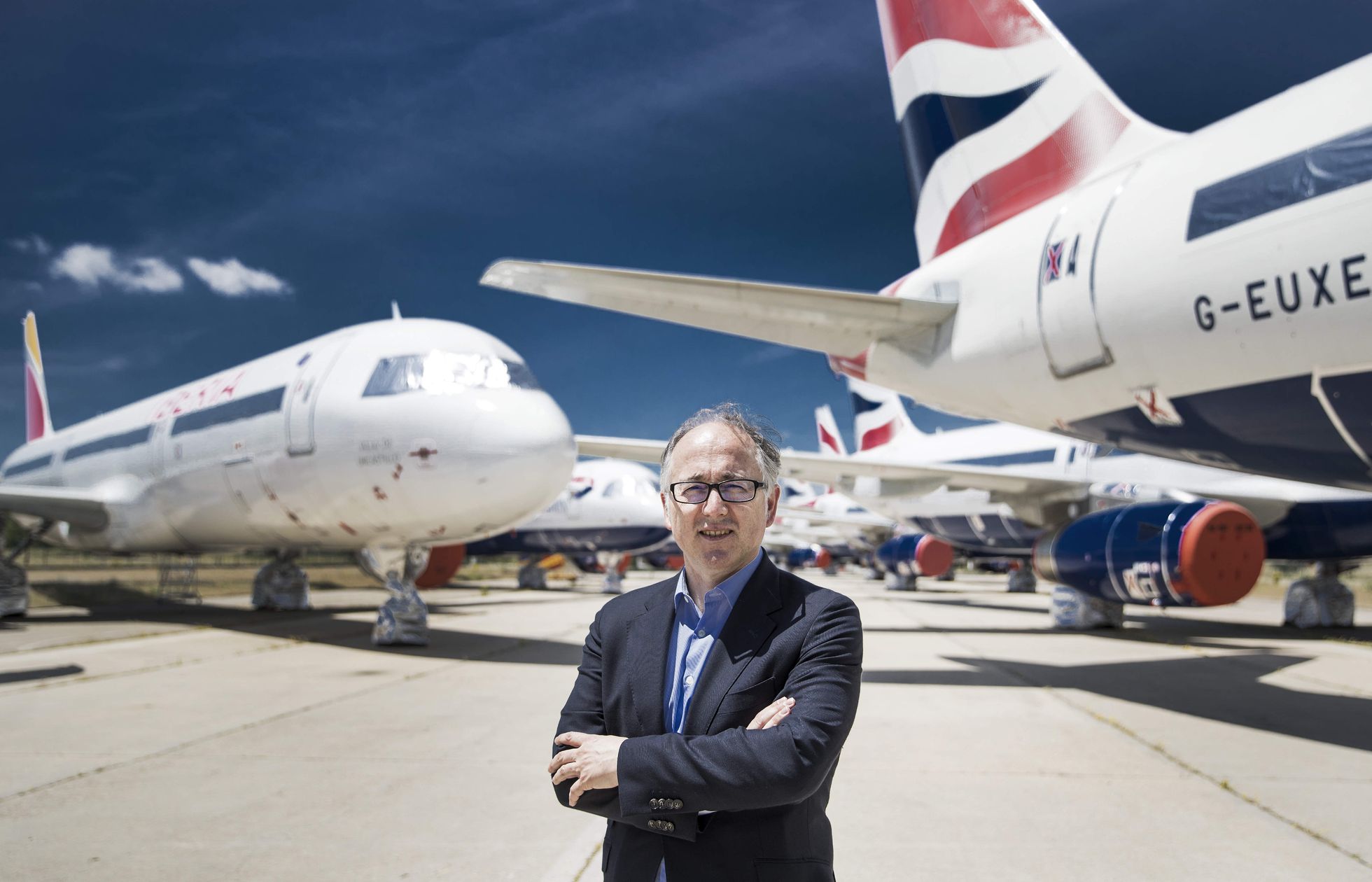Luis Gallego came to the top position at British Airways’ parent company, International Airlines Group (IAG), with a strong track record of financial discipline. Luis does not give many interviews but he has given me the opportunity to interview him at his London head office.
During his tenure at IAG Spanish carrier Iberia, where he was CEO from March 2013, then chairman and CEO from January 2014, he turned the airline around and improved its efficiency, customer service and brand. Before that, Gallego launched Iberia Express, making the new Iberia subsidiary one of the most efficient and punctual airlines in Europe.
IAG, which also owns Aer Lingus, and LCCs Vueling and LEVEL, is one of the world’s largest airline groups with 549 aircraft flying to 279 destinations and carrying around 118 million passengers each year (pre-COVID). The Group was back in the black in the 2022 second quarter, posting a net profit of €133 million ($133 million) versus a €981 million loss for the same period in 2021. Passenger capacity for the second quarter was at 78% of 2019 levels, up from 65% in the first quarter, driven primarily by IAG’s key regions of European short-haul, North America, and Latin America and Caribbean.
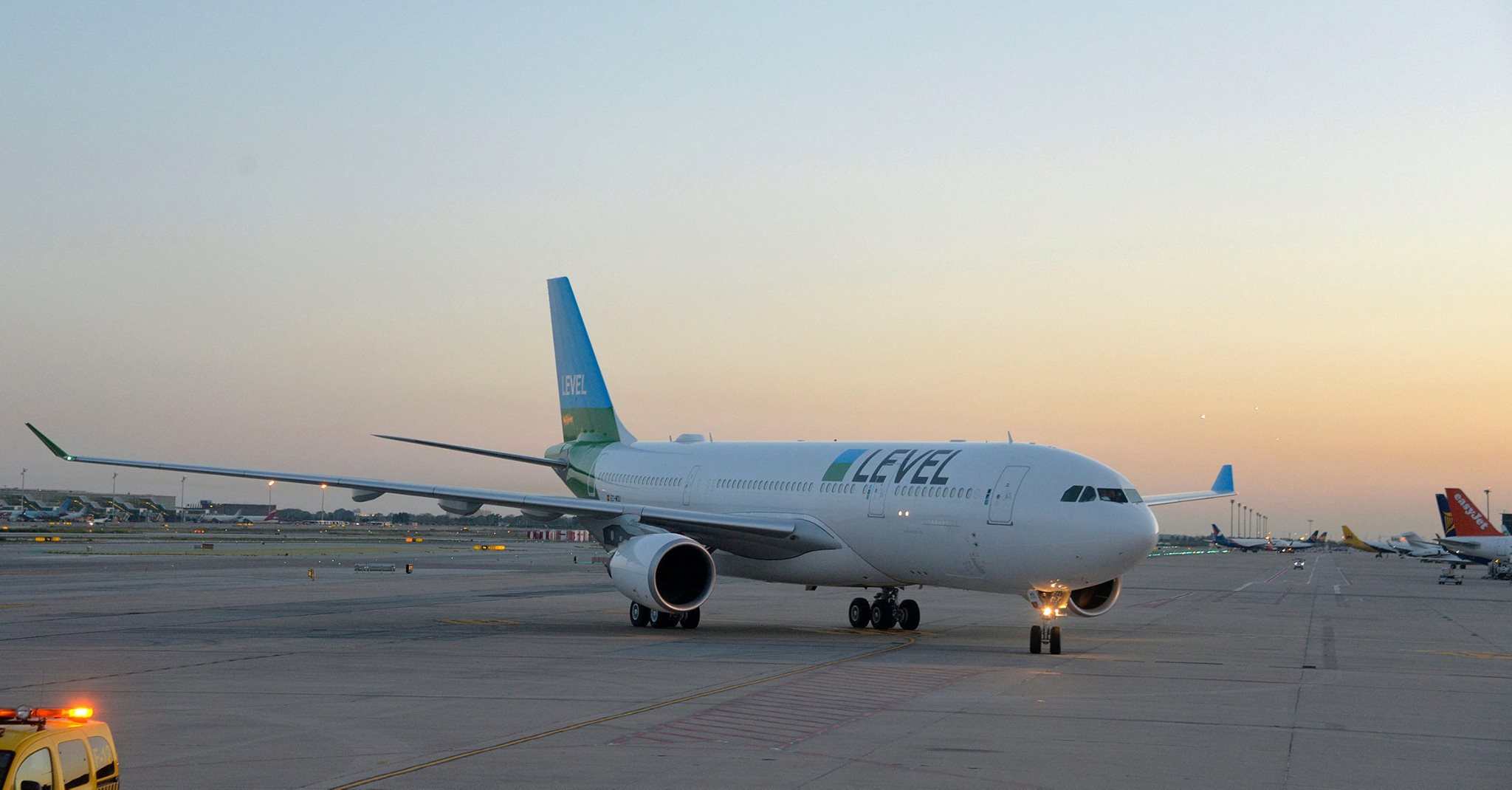
Q: What's the biggest focus for IAG?
We are investing in new technology and new aircraft. We believe that in 2050 this can reduce around 45 percent of our CO2 emissions. We are also investing in Sustainable Aviation Fuel (SAF). That can reduce CO2 emissions by 30 percent by 2050, based on 60 percent of our fuel consumption being SAF. Also, carbon offset and removals is an area we are investing in, that can reduce approximately 20 percent of CO2 by 2050. And the last point which is important is operational efficiencies, which could deliver another 5 percent reduction.
As part of these operational efficiencies, we are always pushing for a Single European Sky, something that is still pending but is a way in which the industry can implement a reduction of CO2 emissions in the short term.
We also talk to our passengers and ask them how important sustainability is for them. We are confident that customers are going to recognise airlines that are leading this effort.
Q: A modern fleet is important. Your thoughts about electric aircraft on short-haul routes?
I think that hydrogen-powered and small electric aircraft will have their place in the medium term. We are working on different initiatives to speed up the development of new technologies. Regarding the narrowbody fleet, we announced recently an order for 50 Boeing 737 and 59 Airbus A320neo family aircraft. With this type of aircraft, fuel consumption can be up to 20 percent less than our current aircraft. The idea is to replace around 60 percent of our current shorthaul fleet by 2028. For the widebody, we are also bringing the latest technology with the A350s, 787s as well the new 777X.
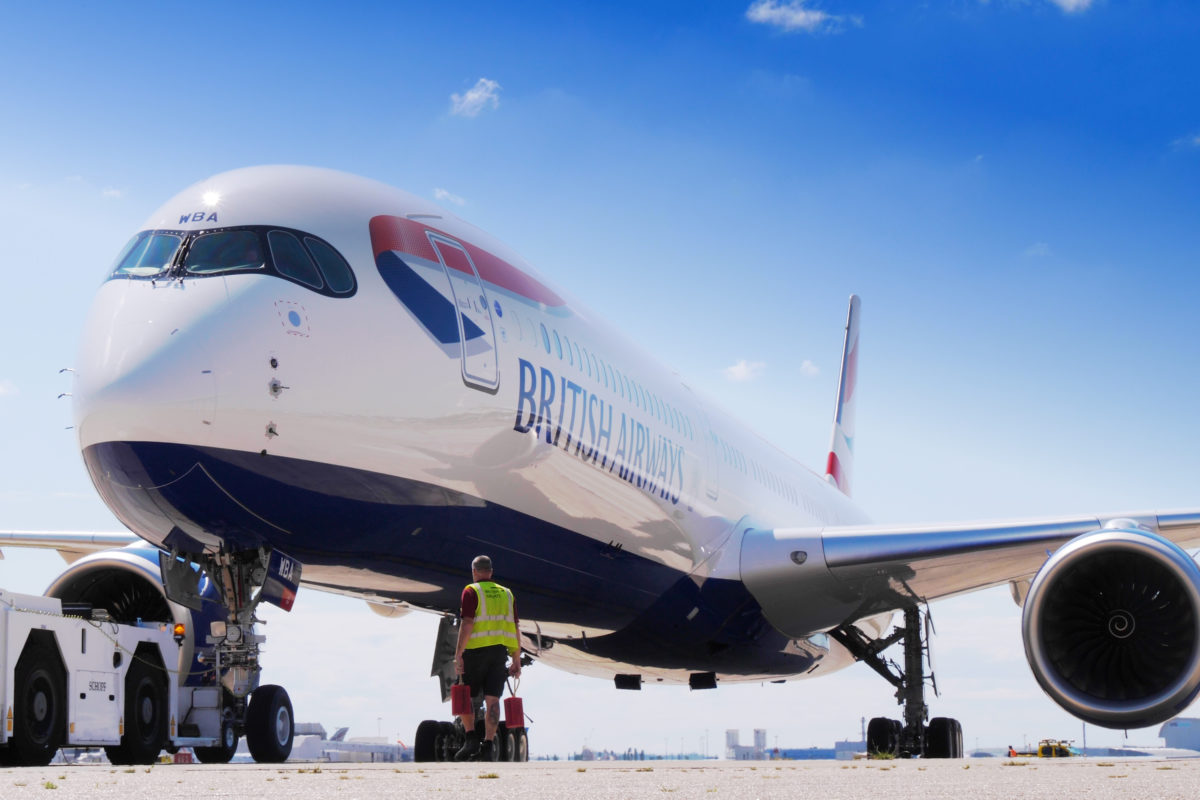
Q: How will IAG achieve its vision to be the leading airline group? Does IAG have to grow further?
We have always said that we have a unique business model. The concept of having accountability across different airlines and determining capital allocation in the Group worked very well.
Before the pandemic, we were one of the best-performing airline groups in the world and we are working to get back to that position. Our model is sharing best practices between the airlines, capturing synergies in cost and revenues, driving efficiencies from the center with activities such as IT and procurement, and also the management of talent.
All of this is crucial for the development of IAG. I think this is not a question of size. It is a question of doing well and what we need to do. For example, M&A has been important for us. We were designed as a platform for industry consolidation and we will continue to explore opportunities.
Q: IAG is strong in Latin America and on the North Atlantic routes. Are there parts of the world where IAG needs more presence? IAG has recently converted the loan provided to Air Europa into a 20% equity stake.
We believe that we need to put our focus on our main markets, such as North America and Latin America.
Luis Gallego, CEO IAG
In order to strengthen our leadership in Latin America we are trying to complete the Air Europa operation because it is critical that the Madrid hub has the size to compete with other Northern European hubs. That‘s the reason why we have converted the loan provided to Globalia into a 20% equity stake in Air Europa but the idea is of course to get 100%. This is subject to an agreement with Globalia and competition approval and we are working on that. I hope to reach an agreement that makes the deal possible.
In the markets where we are strong, we want to continue to be the leaders. We also have LCC platforms like Vueling for intra-European markets that are working very well.
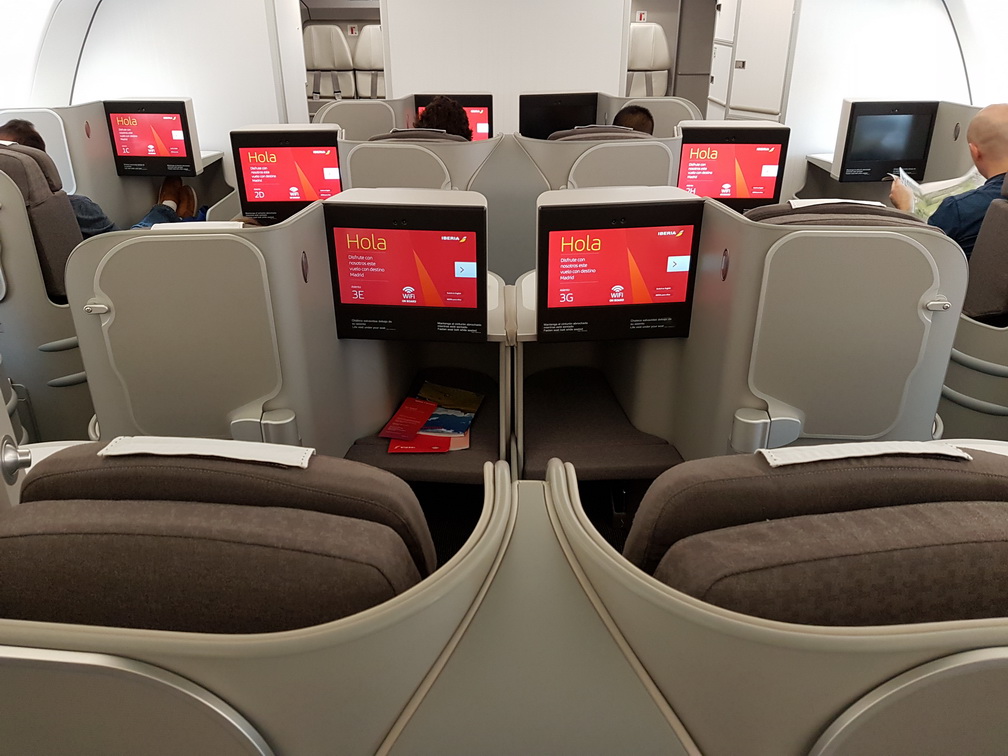
Q: How do you see the LCC market playing out in Europe and how competitive are IAG LCC airlines Vueling and LEVEL?
Vueling returned to profitability for the first time since the pandemic began in Q2. It made an operating profit of €40 million and came back to the capacity that it had in 2019. Vueling has also taken the opportunity to develop the business, for example, in Paris Orly. When Vueling sees that they can compete, they try to develop the business, but they have also the challenge of the inflationary environment which is having an impact on costs. At the end of the day, they have to compete with the big ultra low-cost carriers. That‘s their challenge, how to have the right cost structure to compete in other markets.
When we compare Vueling solution with the solutions of the three network groups that we have in Europe (Lufthansa, Air France/KLM, IAG), the airline is the best option for the shorthaul low-cost market. In long haul low cost, we have maintained LEVEL operating from Barcelona, which is a market we can develop. IAG is still recovering from COVID, but we have always seen Barcelona as a place to invest and the combination of Vueling and LEVEL is an opportunity to serve different markets. Currently, LEVEL has a 20% market share between Barcelona and North American destinations.
Q: Do you have to further reduce the cost structure of the IAG LCCs?
The challenge is not only for Vueling, it is for all airlines we have in the Group.
We are facing a lot of headwinds. For example, sustainability will have an impact on costs. Inflation, supplier costs are increasing. Employee costs too. We are coming back from COVID which has impacted everybody. Now we are trying to come back to where we were in 2019 with inflation that in some cases is above 10 percent.
Luis Gallego, CEO IAG
We cannot increase all the costs in that range because we are not going to be competitive. And if we are not competitive, we cannot develop our business.
We not only have to be competitive in the LCC area, also at Iberia, Aer Lingus, British Airways, in many places.
Q: It looks like everything is ready for a take over of ITA Airways by Lufthansa. Was IAG interested in ITA?
We considered if ITA was an option for us, but we decided that we didn’t want to be there and put our focus on Air Europa.
As mentioned before, it is very important that the Madrid hub can have a size that can be similar, for example, to Amsterdam in order to fly to some places where we cannot fly now because we don‘t have the volume. Our objective is to offer more options to our customers in Madrid and generate more connecting traffic.
We could open new routes to Asia which has always been a (geographical) challenge for Madrid. With the right passenger volumes, we will have the opportunity to develop a 360 degrees hub. Our main focus is Air Europa, but if we cannot achieve this operation, for sure we have a plan B and a plan C to develop our strategies in Latin America.
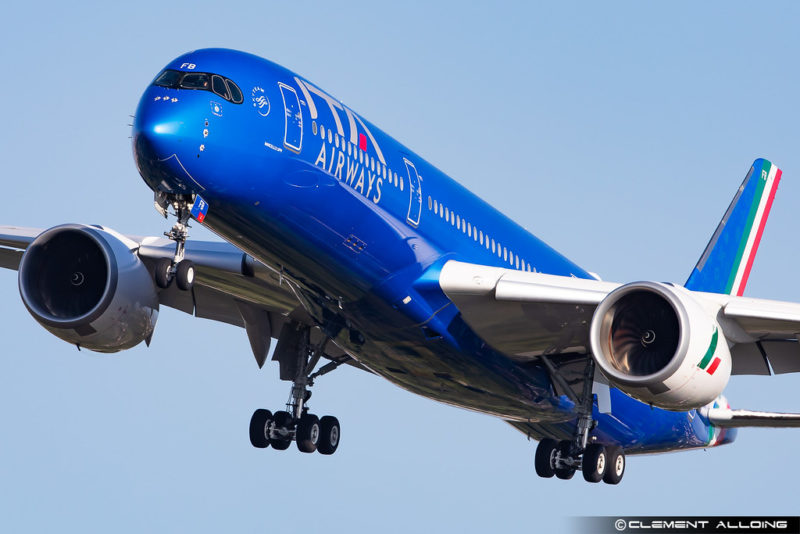
Q: Regarding Qatar Airways‘ stake in IAG. Any possible developments?
To be honest, we are very happy with this investment. They are supporting all the things that we are doing at Group level and the reason why they have invested is that they trust the project, trust IAG, and consider it is a winning proposition. We have opportunities to develop the relationship and we are working in different areas where we consider there are opportunities, for example, the development in Asia. I‘m sure we can have access to Qatar Airways´s network in the Asian market and this is something we are working on with them.
Q: The A380 is returning to British Airways. Where do you see the future of the A380?
There are some discussions now in British Airways. If there is a place where the A380 makes sense, then it is London especially with the slot constraints we have in Heathrow. There are some destinations where the A380 can work well. We are analyzing now if we can invest in this aircraft to try to continue having them in the fleet. If we come to a decision where the A380 business case makes sense, for sure we will continue flying with them.
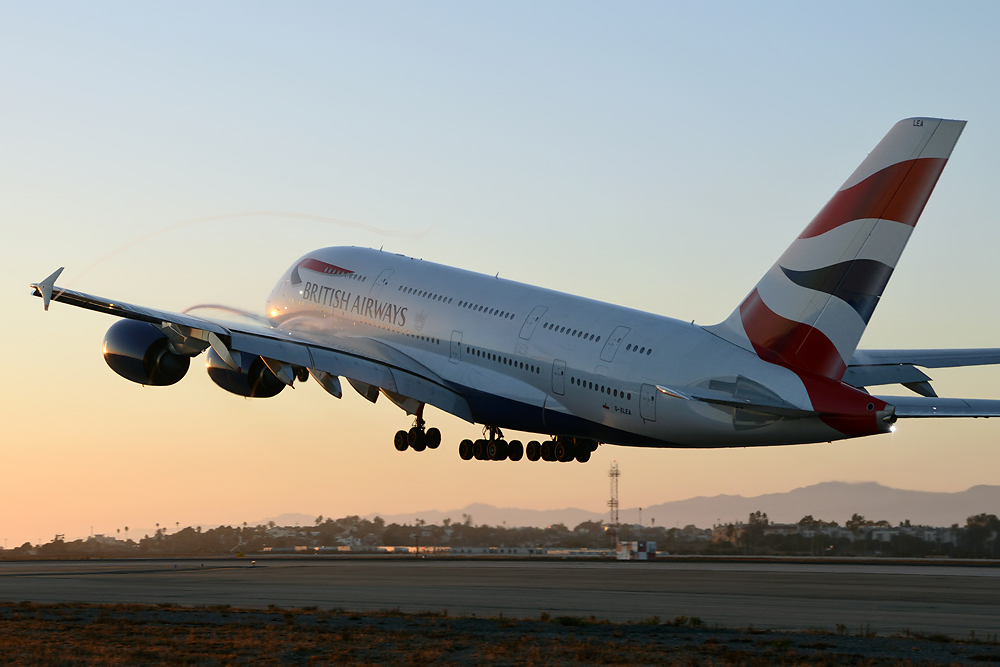
Q: What is the outlook for winter 2022/23 and what is your view on the impact on air travel of a possible long war in Ukraine.
At the moment we see the pressure from inflation and the possibility of a recession, but we are monitoring bookings and we don‘t see any weakness in demand. It is true that at this time of the year as we speak, we don‘t have a lot of visibility around winter but key dates like Christmas, are working well.
There’s a risk of recession and high fuel prices but the business is improving. Let‘s see how the future is going to be. IAG has also hedged its fuel position for the second half of this year at 73 percent. For next year it is around 34 percent.
Q: Airline employees are asking for salary increases. How is the situation within IAG?
The environment is very challenging for everybody with inflation and high prices. What we are trying to do, is to reach agreements because people are key to the success of our company. But we need to be careful because we have to guarantee the future of the company. We cannot reach agreements that can’t allow us to develop the business in the way we need.
During COVID, we preserved jobs where we could. We are discussing now salaries because we were able to maintain jobs. We need to find the balance, we want to take care of our employees and guarantee that we have a future.
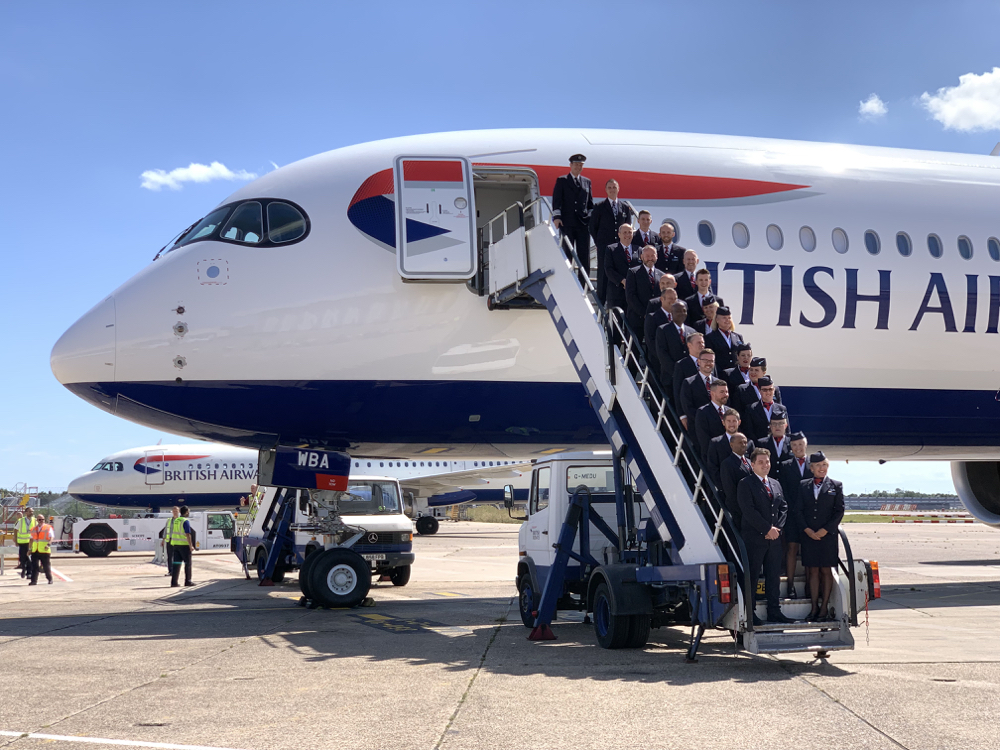
Q: During this summer, the industry was challenged with massive disruptions at airports, like in London Heathrow…
Aviation has demonstrated its resilience in the worst crisis in its history. We have found the way to survive, we have found the way to continue developing the business, and customers are coming back. The pandemic has shown that aviation is a force for good. We connect people, countries and businesses.
Luis Gallego, CEO IAG
For people, it is now even more important to travel than before. We are going to improve the proposal for our customers. We are experiencing disruptions at several airports but we are working hard to provide the product our customers deserve. Regarding London-Heathrow, we need to work together. It is not a matter of blaming each other. The important thing is customers and we want to give them a good experience across the whole process. We need to work together with airports, with everybody.
Cover Photo: via El Pais


